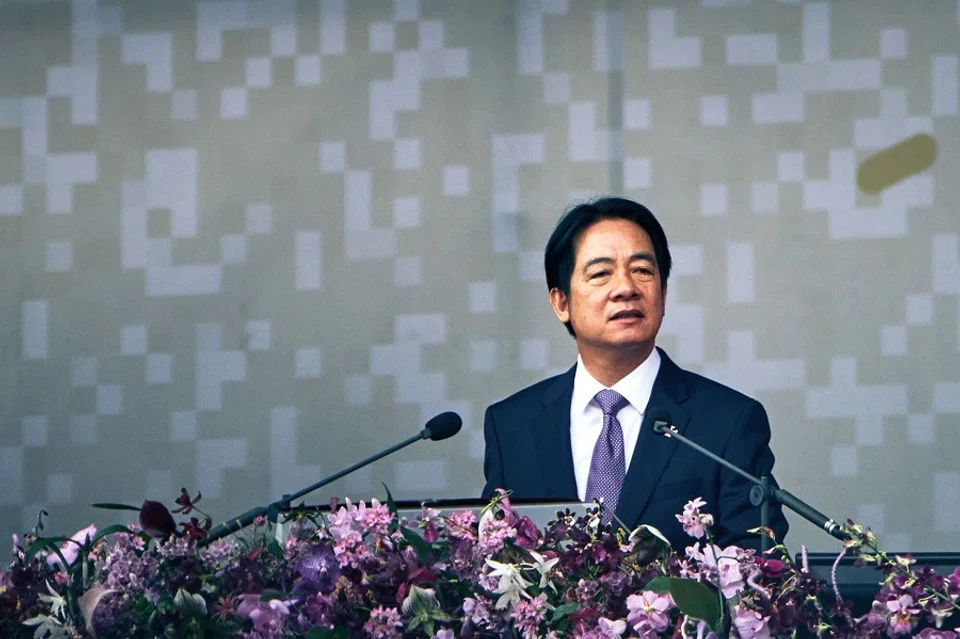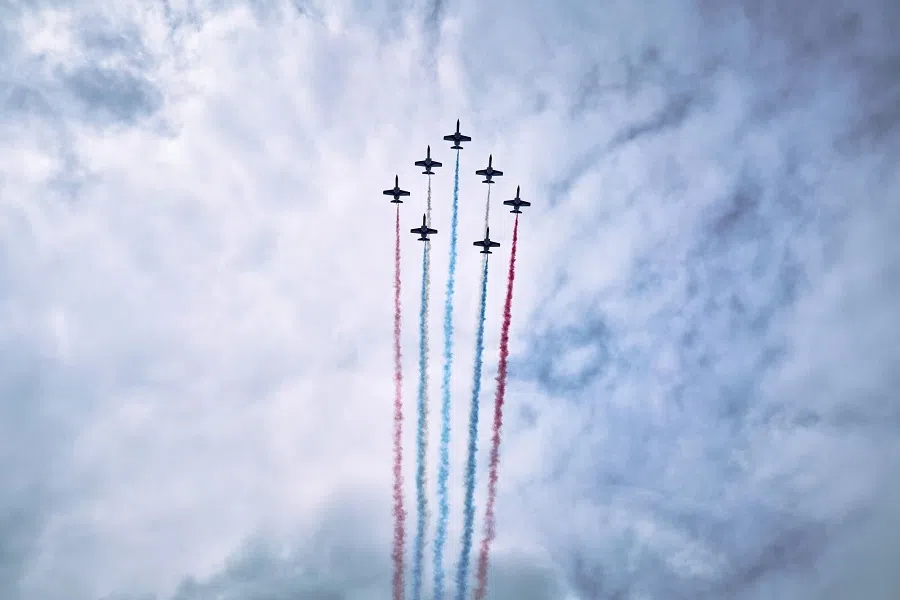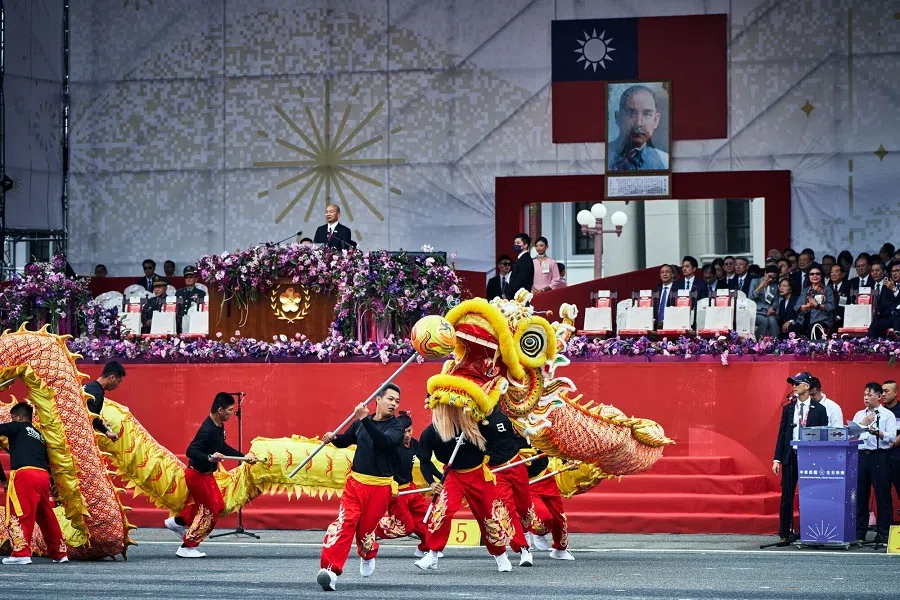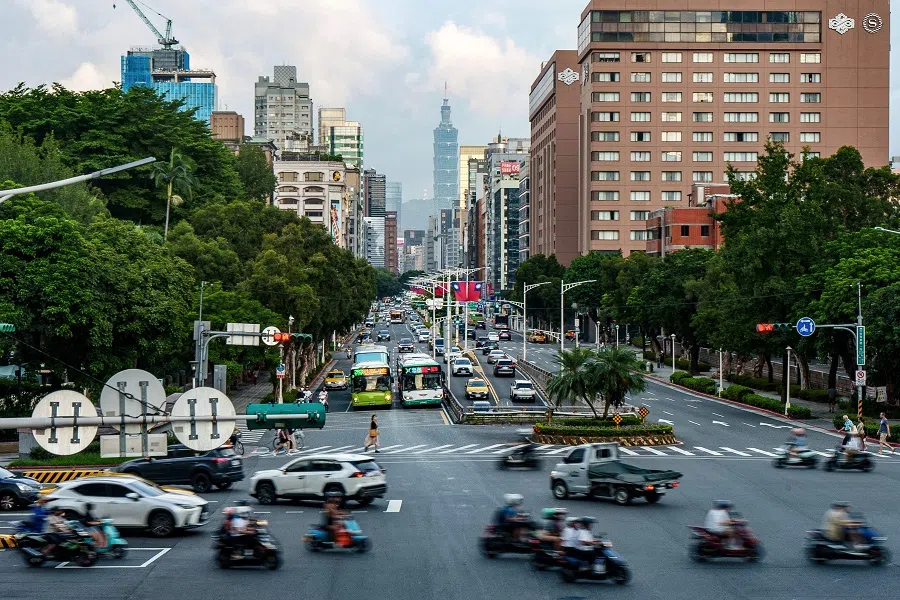Taiwan President Lai Ching-te’s Double Tenth speech: A step-up in de-sinicisation?
Lianhe Zaobao associate editor Han Yong Hong notes that Taiwan President Lai Ching-te’s recent speech, intentionally incorporating elements of the “Republic of China”, has drawn mainland China’s ire and is raising concerns among external observers.

On 10 October, Taiwan President Lai Ching-te delivered his first Double Tenth Day speech since his inauguration, attracting widespread attention. Notably, he did not mention the “motherland narrative” which denies the People’s Republic of China (PRC) as the motherland, and which had raised concerns among external observers. Instead, Lai made reference to the “Republic of China (ROC)” (中华民国) slightly more often than his predecessor, Tsai Ing-wen, intentionally incorporating elements of the ROC into his address.
Some Taiwanese academics believe that by establishing a connection with the ROC, Lai is easing up on “de-sinicisation”. However, others have drawn a different conclusion based on political legitimacy.
No military drill against Taiwan — yet
As expected, Beijing did not hold back in its response. At a regular press conference, mainland China’s foreign ministry spokesperson criticised Lai’s speech as “peddling various versions of ‘Taiwan independence’ narrative” and for harbouring “ill intention of heightening tensions in the Taiwan Strait for his selfish political interest”.
The mainland’s Taiwan Affairs Office (TAO) only issued a response in the evening, but it clarified the mainland’s position. The TAO’s spokesperson pointed out that Lai’s speech continued to propagate the “two-state” rhetoric by claiming that the two sides are “not subordinate” to each other, and incite hostility and confrontation across the Taiwan Straits.
It is a relief to some that the mainland has not announced a new round of military drills against Taiwan. But this could only be temporary, as cross-strait tensions over the past few days have undoubtedly escalated.
At 10 pm on 9 October, the mainland’s Eastern Theater Command posted on Weibo: “The questions of our times have been set, and we are preparing our answers”, alongside a picture of two missiles being fired from a ship — a clear warning sign.
When the DPP is in office, would the “Double Tenth” celebration be considered “ROC’s national day” or “Taiwan’s national day”?

Across the Pacific, the US also gave their response this week. When asked by the media about Lai’s “motherland narrative” on 8 October, Daniel Kritenbrink, the US assistant secretary of state for East Asian and Pacific Affairs, stated that the US’s “fundamental interest is the maintenance of peace and stability across the Taiwan Strait”.
Kritenbrink’s statement left much room for interpretation, with the clearest signal being that the US is drawing a bottomline and issuing a warning on cross-strait issues. A Double Tenth day speech has both the mainland and the US on tenterhooks — what are they nervous about?
Shrinking room to manoeuvre
Taiwan’s “Double Tenth” day originated from 10 October 1911, when a mutiny happened in Wuchang, China. Later called the Wuchang Uprising, most history books consider it a landmark event that led to the wide-scale eruption of the Xinhai Revolution. Months later, the ROC was officially established on 1 January 1912.
The date of the Wuchang Uprising was later designated as the national day of the ROC. Even after Chiang Kai-shek’s national government retreated to Taiwan following their defeat in the civil war against the Chinese Communist Party (CCP), this date has continued to be recognised as a “national day”.
From the perspective of mainland China’s government, after the establishment of the People’s Republic of China (PRC) led by the CCP in 1949, the ROC ceased to exist. Beijing also asserts that Resolution 2758 passed by the United Nations (UN) General Assembly in 1971 “recognise[s] the PRC as the sole legal government representing the whole of China”. This resolution is interpreted as affirming the legal legitimacy of the PRC government, which implies that Taiwan is part of a divided territory and that China has not yet achieved unification.
This controversy involving sovereignty and territorial integrity is at the heart of the problems across the Taiwan Strait. The problems became even more complex as Taiwan moved towards democratisation, along with the rise of the Democratic Progressive Party (DPP) that advocates for Taiwan independence.
Over the years, the mainland has advocated for reunification, while Taiwan’s elected presidents from DPP have openly pushed for Taiwan independence by leveraging narratives of sovereignty and Taiwan’s “national designation”.

When the DPP is in office, would the “Double Tenth” celebration be considered “ROC’s national day” or “Taiwan’s national day”?
Over the years, the mainland has advocated for reunification, while Taiwan’s elected presidents from DPP have openly pushed for Taiwan independence by leveraging narratives of sovereignty and Taiwan’s “national designation”. This has resulted in even less room for manoeuvring in cross-strait issues.
Tactless statements
For instance, when Lai delivered his “motherland narrative” during the ROC 113th Double Tenth National Day Event on 5 October, it sent shockwaves across the globe. Lai claimed that mainland China was a “neighbour” and pointed out that the PRC had only celebrated its 75th birthday while the ROC was marking its 113th. Thus, “it is absolutely impossible for the PRC to be the ‘motherland’ of the people of the ROC. In fact, for people aged 75 or older in the PRC, the ROC might be their actual homeland.”
... the tone of Lai’s Double Tenth speech was not as forceful as expected. Many analysts felt that, under pressure from the US, Lai had already held back.
These words were rather tactless, akin to a tongue-twister. Some analysts felt that Lai’s statement stemmed from his ire that some Taiwanese celebrities reposted congratulatory messages during mainland China’s national day celebrations.
Lai’s words drew the attention of the mainland and the US, concerned that the “motherland narrative” and other unexpected statements would be included in Lai’s Double Tenth speech. Local Taiwan independence factions were also unhappy, as they advocate for the establishment of an independent Taiwan and reject the foreign “ROC”.
Ultimately, the tone of Lai’s Double Tenth speech was not as forceful as expected. Many analysts felt that, under pressure from the US, Lai had already held back.
In line with a ‘pragmatic worker for Taiwan independence’
But upon closer inspection of the entire narrative of his speech, as well as articles by pro-Green Taiwanese media outlets that quoted an unnamed politician, Lai’s discourse recognises on the one hand the historicity of the Republic of China, and on the other hand the fact that the ROC has already put down roots in Taiwan, Penghu, Kinmen and Matsu.

It also argues that the ROC and PRC “are not subordinate to each other” and that “the PRC has no right to represent Taiwan”.
Although a tortuous theme, Lai’s speech was in line with his self-identification as “a pragmatic worker for Taiwan independence”. Those who had strong reactions to Lai’s words, such as Ma Ying-jeou, were quick to raise suspicions that Lai was dividing the two sides of the strait as “two states”, which is unconstitutional.
... peace in the Asia-Pacific is a common interest for the region; everyone is necessarily concerned and would call on both sides to not make statements or take actions that would harm their self-interests, as well as threaten regional peace.
The issue of sovereignty for both sides of the strait is indeed something that outsiders cannot wilfully interfere with. However, peace in the Asia-Pacific is a common interest for the region; everyone is necessarily concerned and would call on both sides to not make statements or take actions that would harm their self-interests, as well as threaten regional peace.
As of now, a potential crisis appears to have been suppressed under the joint management of the mainland and the US — it has been unnerving nonetheless. Looking at the confrontational state of cross-strait affairs, such potential risks would most likely surface again.
This article was first published in Lianhe Zaobao as “赖清德的双十演讲“惊奇””.



![[Video] George Yeo: America’s deep pain — and why China won’t colonise](https://cassette.sphdigital.com.sg/image/thinkchina/15083e45d96c12390bdea6af2daf19fd9fcd875aa44a0f92796f34e3dad561cc)
![[Big read] When the Arctic opens, what happens to Singapore?](https://cassette.sphdigital.com.sg/image/thinkchina/da65edebca34645c711c55e83e9877109b3c53847ebb1305573974651df1d13a)
